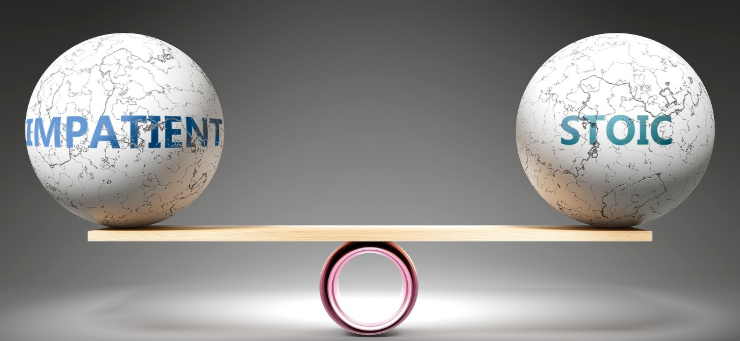02.11.20
The Stoic Leader
Karl R. LaPan, President & CEO, The NIIC

You’ve likely heard of someone practicing stoicism (In this case, it’s likely with lowercase, as in “S/he exhibits a sort of stoicism in dealing with the loss of his job.”) This word is in today’s vernacular, but there are many nuances to its meaning in the historical context. Stoicism is a school of philosophy that hails from ancient Greece and Rome in the early parts of the 3rd century, BC. So, this is not exactly a popular or well-known philosophy today in the United States.
Simply put, stoicism “focuses on mindfulness, resilience, creativity and more, which are believed to yield a happy and full life”.
Last year, thanks to an introduction to stoicism from my colleague and friend Tim Brown, I was introduced to the concept. As a result, I purchased The Daily Stoic and began to learn and apply daily principles and practices embraced by top performers, presidents, and other great minds to find greater centeredness, joy, and meaning in my life. I have tried to incorporate some of the values and philosophies in my daily routine to become more mindful, aware, creative, and in control of my daily professional and personal life. For instance, today’s entry is entitled “anger is bad fuel.” Anger is an extreme emotion and as such, it is toxic fuel.
The “thought leaders” of the time (Seneca and others) embraced “a philosophy of life that maximizes positive emotions, reduces negative emotions and helps individuals to hone their virtues of character.” The glass is always half full to the stoic.
What does this mean in the context of the business world, you ask? In general, stoics have mastered turning obstacles, or even failure, into opportunity. Here are specific nuggets you can take away from this philosophy and apply to your business, regardless of industry:
- Accept what we cannot change.
We have to control ourselves first if we want to change the outcome of events. Self-control gives us agency even when circumstances challenge us. Stoics turn obstacles into opportunities. Per the Pareto Principle, “life is 20 percent what happens to you and 80 percent how you respond.”
- Be unapologetically you.
Imitation may be the highest form of flattery, but it’s not good for business. It’s important to have role models but admiration with imitation can be dangerous. In the quest to produce a better product or offer a more enticing service, you can end up with a second-rate one if you’re not careful. On the contrary, stoicism means owning your quirks and even leaning into them to come out ahead.
- Don’t discount the power of intention and gratitude.
A stoic starts each day with goals and a plan to achieve them. It’s been proven that writing daily goals helps cement them in the brain and increases the likelihood of achievement. Success is also compounded by a grateful mindset. Harvard psychologist Shawn Achor’s research indicated that workers who employed a gratitude practice at the start of their day had better outcomes than the control group.
- Tackle adversity head-on.
Stoicism makes you stronger in the face of challenges. Flipping obstacles upside down help you see your struggle from a different point of view. And remembering how small you are in the scheme of things keeps your ego manageable and in check.
As you begin to intentionally and meaningfully tackle your goals for 2020. I’ll leave you with this closing thought from Stoic and Emperor of Rome Marcus Aurelius: “The things you think about will determine the quality of your mind.”

